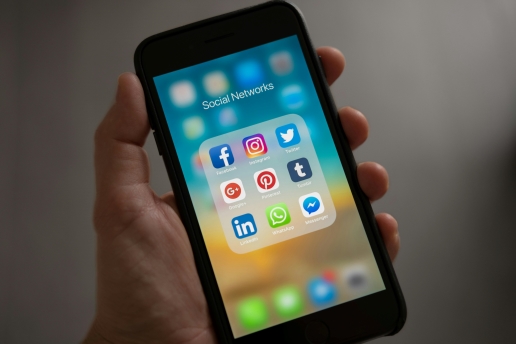As teenagers are inseparable from their devices, social media has become a part of their daily lives. But does this mean they are more prone to depression? A recent study on teenagers reveals that the impact of social media on mental health is closely linked to their "level of extroversion." So how can we help frequent TikTok, Instagram, or YouTube users avoid emotional lows?
Key Findings from the Study
A study published in the Journal of Adolescence surveyed 237 American teenagers over two years, exploring the connection between social media and depressive symptoms. It found that teenagers who spend significant time on platforms like TikTok, Instagram, and YouTube are more likely to experience severe depressive symptoms. These platforms, with their image-heavy content and real-time interactions, often trap users in a cycle of comparison and overreliance on external validation, intensifying emotional stress.
However, not all teenagers are affected equally. The study showed that personality traits, particularly extroversion, play a decisive role. Extroverted teens are less likely to feel depressed despite frequent Instagram use, while teens with lower or moderate extroversion levels are at higher risk. This highlights how personality can act as a psychological defense, varying the impact of social media.
Expert Insights on Platform-Specific Risks
Dr. Chen Zhicai, a child and adolescent psychiatrist, notes that the study reveals how personality shapes emotional responses to specific platforms. For example, girls who frequently use Twitter are more prone to depression due to its focus on political and social issues that trigger emotional reactions. On TikTok, teens who face negative feedback within a year are more likely to experience prolonged depression. For Instagram, frequent use exacerbates emotional lows, particularly in less extroverted teens.
Guidance for Parents, Teachers, and Professionals
These findings underscore the importance of understanding how teenagers interact with social media, especially those with introverted or emotionally vulnerable personalities. Social media’s emotional impact is not one-size-fits-all; it requires examining individual traits and behavior patterns.
Encouraging Self-Reflection and Emotional Awareness
Ye Yaxin, Director of the Mental Health Center at the John Tung Foundation, emphasizes that teenagers must learn self-reflection, and understand their personality traits and emotional responses after using social media. Extroverted teens, with broader social circles, can more easily receive positive feedback that mitigates negative effects. In contrast, introverted teens or those sensitive to social media are advised to document their emotional changes. For instance, tracking whether they feel better or worse after 30 minutes of use can help them recognize social media’s impact on their well-being.
Recognizing Warning Signs of Depression
Social media interactions are often unpredictable, and some teens may spiral into negative thoughts that disrupt daily life, such as insomnia, loss of interest, or feelings of worthlessness. These are warning signs of depression. Parents should intervene and seek professional help if these symptoms arise after social media use.
Helping Teens Use Social Media Healthily
Guiding teenagers to use social media wisely is a significant challenge for parents. They should first understand their child’s habits, discuss the pros and cons of social media, and help them find a usage style that suits them. For teens prone to emotional distress, parents can encourage positive interactions, such as joining supportive groups or creative activities and avoiding excessive exposure to negative information. Social media usage can lead to many unpredictable situations. Parents are encouraged to help teenagers learn smart usage and choose methods that benefit them. (Image source: Pexels)
Social media usage can lead to many unpredictable situations. Parents are encouraged to help teenagers learn smart usage and choose methods that benefit them. (Image source: Pexels)
Parents can also set reasonable limits on social media usage and encourage diverse interests like outdoor activities, sports, or artistic pursuits to reduce dependency on social media. Most importantly, parents should lead by example, avoiding excessive screen time at home and establishing healthy digital habits together with their children.
Balancing Social Media and Mental Health
Teenagers are in a critical stage of self-discovery and exploring the world. While social media offers convenience and enjoyment, it also poses challenges. Helping them develop healthy social media habits is an essential task for modern parents. By fostering open communication, encouraging self-reflection, and adopting a rational, proactive approach to social media’s effects, we can safeguard teenagers’ mental health. This ensures they avoid the "social media trap" and grow with confidence and vitality.
Source: Mom & Baby







